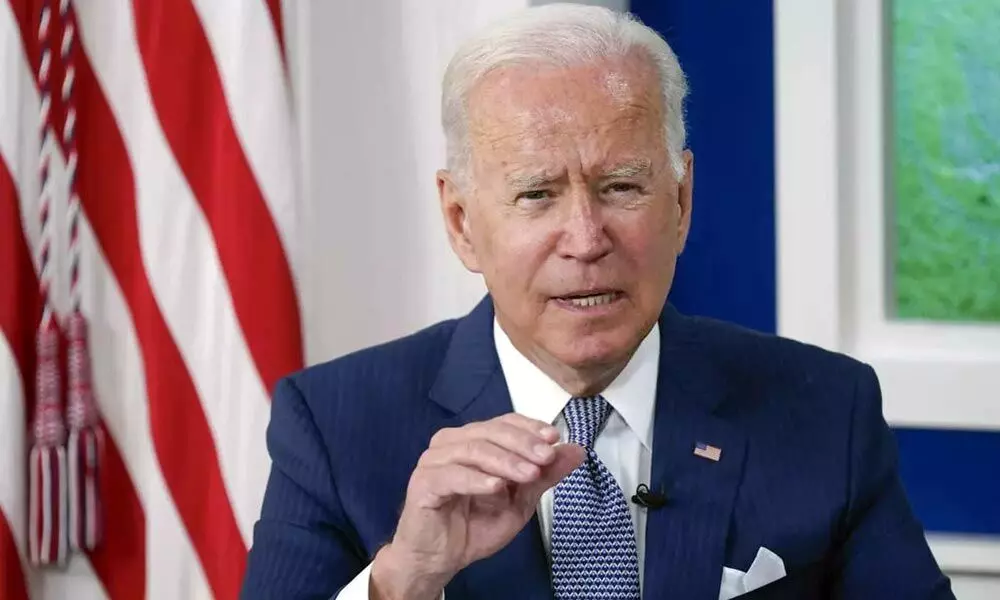Biden invokes India, Brazil to explain Covid-led global supply chain disruptions
US President Joe Biden cited India and Brazil to explain how the complex global supply chain has been hit hard by the Covid-19 pandemic, resulting in higher prices and long delays in shipment of products, ahead of Christmas.
image for illustrative purpose

These supply chains are complex, even products as simple as a pencil. Going to have to use wood from Brazil, graphite from India before it comes together at a factory in the United States to get a pencil. Sounds silly, but that's literally how it (is)... So, all of a sudden you got the Covid crisis in Brazil. You can't get the product made because the plant shuts down. That's what's happening
Washington: US President Joe Biden cited India and Brazil to explain how the complex global supply chain has been hit hard by the Covid-19 pandemic, resulting in higher prices and long delays in shipment of products, ahead of Christmas. Speaking in Baltimore on Wednesday, Biden vowed to modernise America's ports, airports and freight rail to make it easier for the US companies to get their goods to market and end supply chain woes.
Biden said as long as goods and materials are reaching where they need to reach in time, there's usually no need to worry about the supply chains. The Covid-19 pandemic has stretched global supply chains like never before, he said, adding that "suddenly, when you go to order a pair of sneakers or a bicycle or Christmas presents for the family, you're met with higher prices and long delays".
"In simple terms, the supply chain is just the journey a product takes to get to your doorstep. Raw materials plus labour, assembly, shipping, everything it takes to create the finished product," he said. Biden further said, "These supply chains are complex, even products as simple as a pencil. Going to have to use wood from Brazil, graphite from India before it comes together at a factory in the United States to get a pencil. Sounds silly, but that's literally how it (is)... "So, all of a sudden you got the Covid crisis in Brazil. You can't get the product made because the plant shuts down. That's what's happening," he said.
"Products like smartphones often bring together parts from France, Italy, chips from the Netherlands, touchscreens from New York state, camera components from Japan, the supply chain that crosses dozens of countries. That's just the nature of the modern economy, the world economy," he added. As post-pandemic demand surges and the economy tries to recover, delays at major ports around the world have driven up prices for daily essentials.
Biden has been taking steps to tackle the supply chain disruptions, including a meeting with CEOs of courier companies in a bid to ensure shop shelves are full during the coming holiday season. Meanwhile, according to government data, consumer prices in the US rose 6.2 per cent in October from a year ago, the sharpest increase since 1990. The data comes days after a $1 trillion infrastructure bill was cleared by Congress that the president has said will create jobs and help cool inflation. Biden said the global supply chains have helped dramatically bring down the price "we pay for things we buy". But they have also made them much more dependent on what happens in other parts of the world. So, if a factory in Malaysia shuts down due to a Covid-19 outbreak, which they have, it causes a ripple effect that can slow down auto manufacturing in Detroit, he said. "Why? It can't get the computer chips they need. If a climate disaster closed a port in China, it can delay shipment of furniture or clothing, reduce worldwide supply and drive up prices here in America. And the irony is people have more money now," he added. Biden said his administration will modernise ports, airports and freight rail to make it easier for companies to get their goods to market, reduce supply chain bottlenecks and lower the cost for working families.

